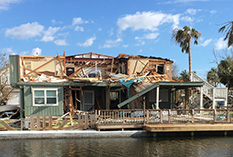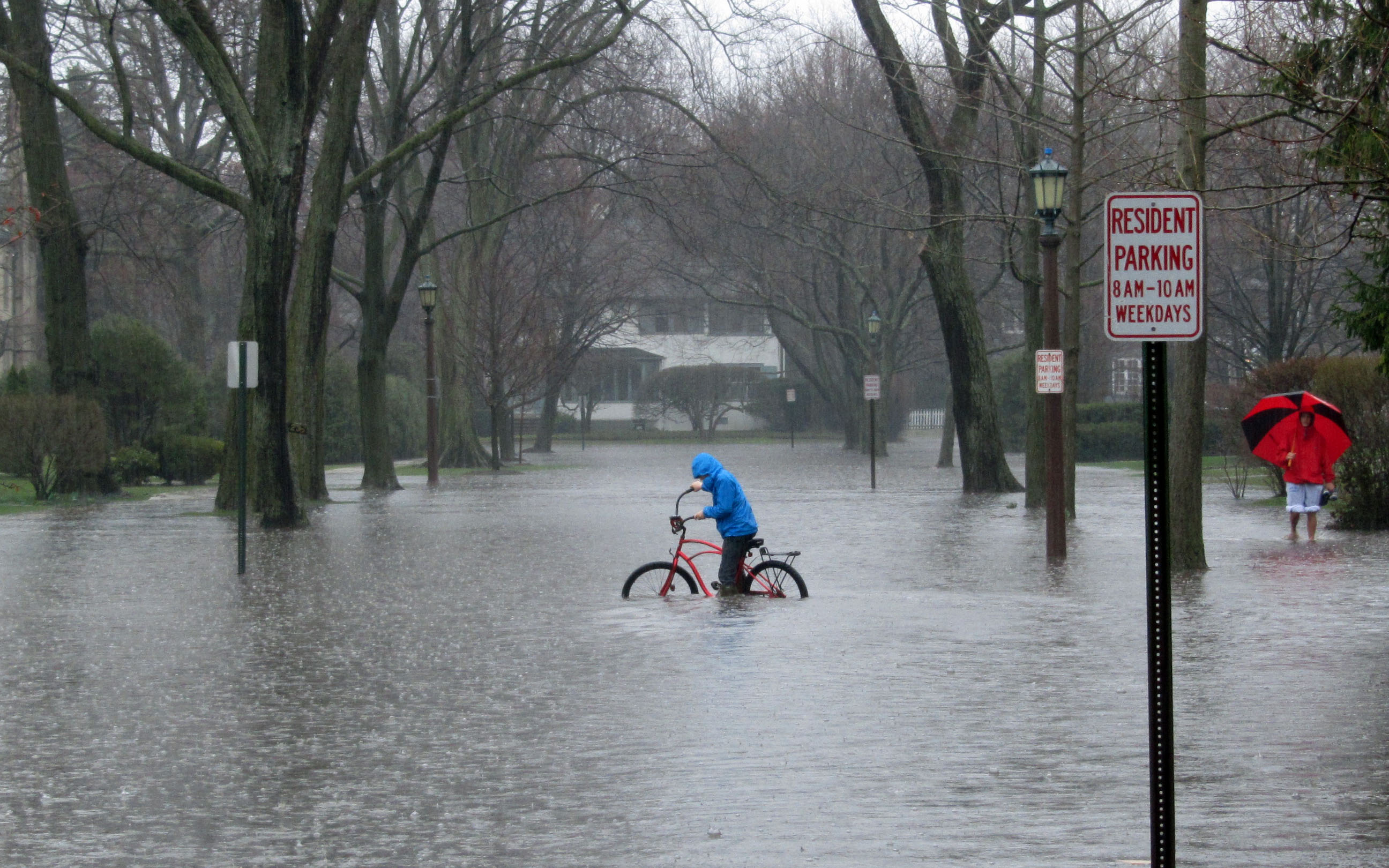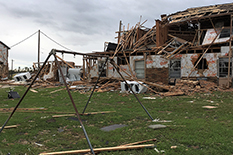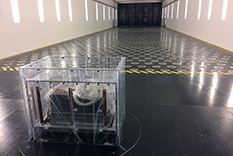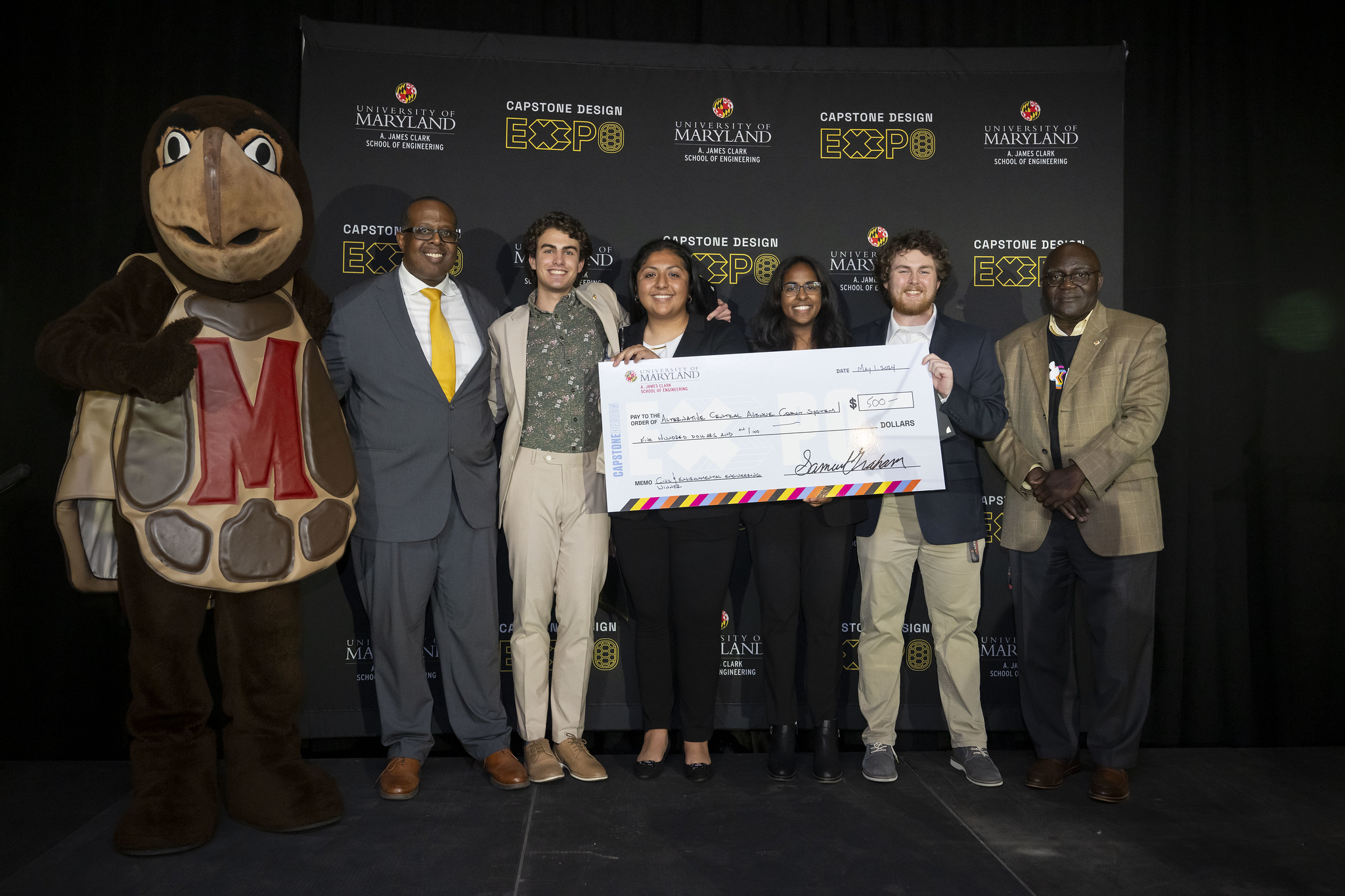News Story
UMD Resilience Experts Awarded NSF Grant to Accelerate Disaster Recovery

A team of University of Maryland (UMD) researchers led by Allison Reilly, assistant professor in the Department of Civil and Environmental Engineering, has received a $750,000 National Science Foundation (NSF) grant to explore and improve how infrastructure operators make recovery decisions in the wake of disasters.
The three-year award is part of NSF’s Critical Resilient Interdependent Infrastructure Systems and Processes program—better known as CRISP—which supports transformative research to ensure the nation’s critical infrastructure services are efficient, dependable, adaptable, resilient, safe, and secure. Reilly is joined on the project by Melissa Kenney and Mike Gerst from UMD’s Earth System Science Interdisciplinary Center and Cooperative Institute for Climate and Satellites-Maryland.
Rapid disaster recovery of electrical, water, telecommunication, and other infrastructure systems is critical to the resilience of communities that depend on their services. Recovery can be slowed, however, when operational procedures don’t account for the ways these systems depend on one another.
“Imagine you are a power plant operator after a disaster. You may be hesitant to take certain restoration steps until you know the IT system is working, while at the same time an IT operator is waiting for a sign that recovery efforts have begun at the power plant,” Reilly explained. “Operators frequently complain about this problem, but we don't currently know enough about what drives these decisions to recommend better co-management practices."
Reilly, Kenney, and Gerst will leverage their multidisciplinary expertise to build a comprehensive understanding of operator decision-making.
“We will be going out to talk with operators, utilizing interviews and gaming techniques as ways to observe their behavior,” Gerst elaborated.
This work will be complemented with computerized modeling designed to reveal the interrelationships between networks and the ways autonomous agents affect larger systems. Together, these methods will enable the team to characterize the divide between ideal and real-life outcomes.
“We are not just modeling and optimizing physical infrastructures. This research focuses on the linchpin—the choices made by people on how to co-manage these systems,” Kenney said. “By understanding what drives operator decisions, we can explore approaches and develop recommendations to reduce infrastructure failure times.”
The researchers will work first with operators at UMD’s Facilities Management and Division of Information Technology. The insights will then be refined and validated in collaboration with the Marine Corps Recruit Depot, Parris Island in South Carolina and other partners.
An affiliate of the Center for Disaster Resilience, Reilly joined UMD in 2016 from the Department of Industrial and Operations Engineering at the University of Michigan. She also served as a research analyst for the Homeland Security Studies and Analysis Institute, a federally-funded research and development center in support of the Department of Homeland Security.
Published August 14, 2018

